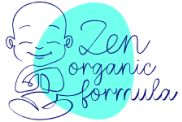
Written by
ZOF Support
Published on
March 05, 2025

The trend of parents investing in European baby formula has been steadily rising for the last few years, and from the looks of things, it shows no signs of stopping. But why choose imported EU baby formula over brands you can find in your local store? Read on to find out why parents are ditching mainstream brands, what the difference really is, and whether you should consider making the switch.
What Is European Baby Formula?
Before we dive into the differences between U.S. and European formula brands, let’s take a moment to define what European formula actually is and why it stands out.
European baby formula is manufactured under the strict regulations of the European Union (EU), which enforces high standards on ingredients, nutritional content, and production methods. Unlike some mainstream American formulas, European formulas emphasize organic ingredients, balanced nutrition, and a commitment to avoiding unnecessary additives.
Popular European Baby Formula Brands
Many parents exploring European formula options will likely come across these well-known brands:
-
HiPP – A leader in organic baby formula with a focus on sustainability and gut-friendly probiotics.
-
Holle – One of the oldest organic formula brands, known for its biodynamic farming practices.
-
Kendamil – A British brand that uses whole milk for a naturally creamy texture without palm oil.
-
Jovie – A newer brand specializing in high-quality goat milk formulas.
Each of these brands meets EU nutritional standards, providing parents with a formula that closely mimics breast milk while using premium ingredients.
Key Differences Between U.S. and European Baby Formula
1. Ingredient Quality & Organic Standards
One of the biggest reasons parents choose European formula is the quality of ingredients. EU regulations prohibit artificial preservatives, synthetic nutrients, and GMOs. Many European formulas also have organic certification, such as EU Organic, Demeter, or Bioland, ensuring that the milk comes from farms that prioritize animal welfare and sustainable agriculture.
In contrast, some U.S. formulas contain additives like synthetic preservatives and refined sugars that wouldn’t be allowed in the EU.
2. DHA & ARA for Brain Development
DHA (an essential Omega-3 fatty acid) is required by law in European formulas to support brain and eye development. Additionally, the EU restricts the use of hexane-extracted DHA, ensuring a cleaner and more natural source.
In the U.S., DHA is optional, and when included, it is often extracted using hexane, a chemical solvent that some parents prefer to avoid.
Kendamil, for example, uses plant-based DHA, saying that, “Fish oil extraction typically requires organic solvents such as hexanes and leads to concerns about residual organic solvents in oil and the production of chemical waste.”
3. Sweeteners & Carbohydrates
European formulas use lactose as the primary carbohydrate, which is the closest match to breast milk. This ensures a gentle digestion process for babies.
On the other hand, many U.S. formulas rely on corn syrup, glucose syrup, or maltodextrin—cheaper sugar alternatives that some parents want to avoid.
4. Probiotics & Prebiotics for Gut Health
A baby’s gut health is crucial in the early months, and many European formulas naturally include prebiotics and probiotics to support digestion and immunity.
While some U.S. formulas contain probiotics, it’s not standard, and many parents must supplement separately.
5. Staged Formulas for Growth Phases
European baby formulas are available in multiple stages to cater to a baby’s evolving nutritional needs:
-
Stage 1 (0-6 months): Designed for newborns.
-
Stage 2 (6-12 months): Adjusted for older babies transitioning to solids.
-
Stage 3+: Supports toddlers with additional nutrients and energy needs.
Many U.S. formulas follow a one-size-fits-all approach, which doesn’t always meet the changing needs of a growing baby.
6. Goat Milk Formula Availability
Goat milk formulas are much more common in Europe, offering a gentle alternative for babies with cow’s milk sensitivities. Brands like Jovie, Holle, and Kendamil produce high-quality goat milk formulas that are easier to digest due to the smaller fat globules and lower lactose content.
In the U.S., goat milk formulas are harder to find and not as widely accepted by pediatricians, as cow milk formula is seen as standard.
7. Stricter Regulations & Transparency
EU formulas must meet strict regulations, with frequent quality testing and transparency in ingredient sourcing. Many brands provide detailed reports on their nutritional content and farming practices.
While the U.S. FDA regulates baby formula, it allows certain additives that would be banned in the EU, and there is less transparency about ingredient sourcing.
8. Avoiding Palm Oil & Soy-Based Ingredients
Some parents worry about palm oil in formula, as it can reduce calcium absorption. Many European formulas avoid it or use alternatives like coconut or sunflower oil.
Soy-based ingredients, commonly found in U.S. formulas as a protein source, are limited in European brands due to concerns about phytoestrogens and digestibility.
9. Availability & Accessibility
While European formulas boast premium quality, they aren’t always as easy to find in U.S. stores. Parents often rely on trusted importers like Zen Organic and specialty retailers to get their preferred formula.
So, Is European Baby Formula Worth the Cost?
For many parents, the answer is a resounding yes. With stricter regulations, organic ingredients, and a commitment to high nutritional standards, European baby formulas offer a premium alternative to many mainstream U.S. brands.
Parents who prioritize clean ingredients, DHA-rich formulas, gut health support, and lactose-based sweeteners often find that European formulas provide peace of mind, a closer match to breast milk, and in many cases, a happier baby!
Where to Buy European Baby Formula
If you're ready to make the switch, Zen Organic Formula only stocks trusted European brands like HiPP, Holle, Kendamil, and Jovie. We offer excellent choices for different needs, from organic cow’s milk to gentle goat milk alternatives.
Explore now for more details on the best European formulas available and find the right one for your little one today!




